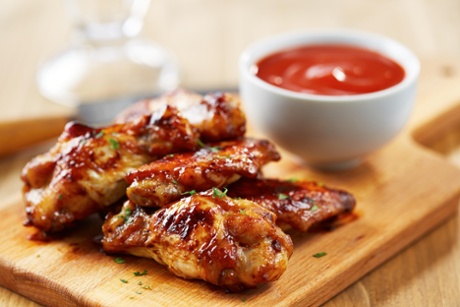
Recently on the Radio 4 food show The Kitchen Cabinet, the panel were asked to name dishes they had inherited from their parents. There was sweet talk of dense stews and shepherd’s pies. As the chair of the show I wasn’t required to answer and I was grateful for the fact. It may sound disloyal but I didn’t have much to say. There’s a salad – lots of thinly sliced peppers, red onions and torn basil – which I picked up from my mother, but I think she got it out of Craig Claiborne’s New York Times cookbook. Other than that, while my mother was a good cook, she was very much of her time. I have no desire to make the utter faff that is coulibiac (salmon, wild rice and boiled eggs in a puff pastry shell; her go-to dinner party dish) and I will not torture my kids with spaghetti marrow as she once tortured me.
I suspect that I am not alone. We may now inherit an interest in the table from our parents but not the dishes themselves. In this there are many who think wistfully that we have lost something, which is to misunderstand what the passing on of recipes was all about. The key inherited dishes of Britain, the sort documented by the social historian Dorothy Hartley in her 1954 book Food in England, were inherited by necessity rather than a sentimental attachment to “the old ways”.
You grew up in the village where you would die. You learned how to manage the whole pig when it came to slaughter so it would last through the year. You learned how to make one kind of bread from the newly ground flour and a different kind from the same flour six months later when it had aged. You might look to the distant hills and wonder what was over the other side, but you were unlikely to go there.
Now we are mobile in so many ways. We cross those hills and keep on going, and are spared the worry of the flour’s ageing. While the sentimental will mourn the passing of a certain community cohesion, the reality is that social and geographical immobility was a function of poverty. You didn’t go anywhere else because you couldn’t afford to. You stayed home and cured pork belly for bacon like your mother and her mother before her.
Now, generally, if we cook our parents’ food it is to take us to an emotional place rather than a gastronomic one. Otherwise we cook as our curiosities take us, and that has to be a good thing. Of course, it makes the idea of passing on recipes more than ludicrous: “My son, I bequeath unto you this recipe for chargrilled chicken wings with a miso glaze and kimchi slaw which has been in our family for, oooh, 18 months now, since Uncle Derek gave me that modern Korean cookbook the Christmas before last.” No, perhaps not.
What does that leave us parents with? In terms of actual recipes not a whole lot. Instead we bequeath to our sons and daughters an enthusiasm for food and a sense of adventure.
We pass on self-reliance and knife skills, and a smear of good taste. And maybe we slip a copy of Simon Hopkinson and Lindsey Bareham’s Roast Chicken and Other Stories into their suitcase as they go. After all, the years may pass, and times may change. But everybody needs to know how to roast a chicken.

